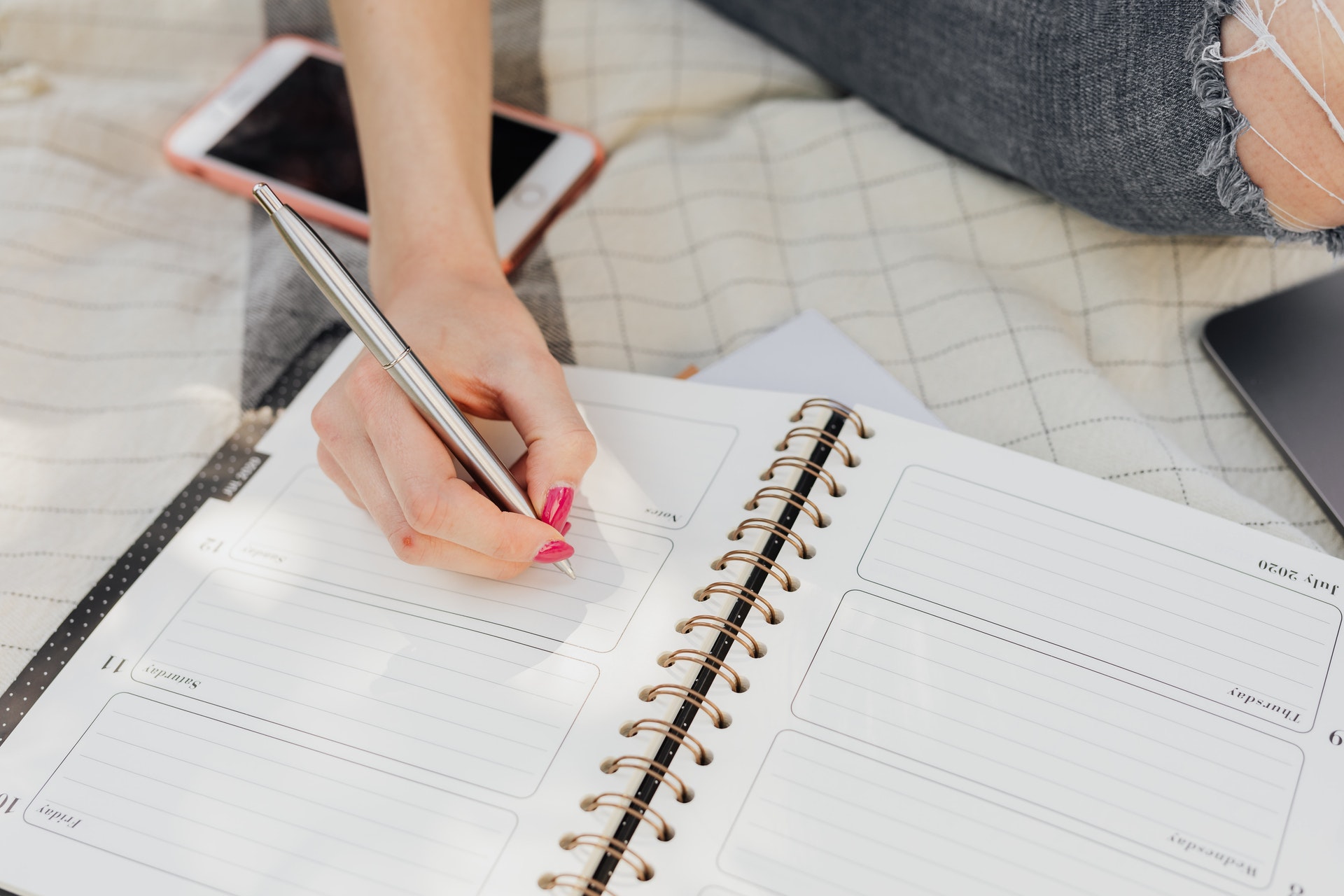With greater responsibilities and growing interests, teens struggle to juggle their time just as adults do. Time management for teens is not a subject taught in school, and many of us fumble along for years trying to figure out how to get the most out of each day.
Time, in a way, is like money. Used wisely, it can help you achieve your goals and bring various degrees of satisfaction. Wasting it often brings regret and anxiety. Unlike money, however, everyone has exactly the same amount of time each day. It is up to us how to spend it; and if we waste one day, barring disaster, we will have the opportunity to seize the next.
READ MORE:
- Children’s Books – They’re Not What They Used To Be
- Birdwatching – Family Fun for All Seasons
- Self-Compassion – To Nurture Empathy Start With Yourself
With the right tools and some determination, you can not only help your teen to reduce stress and keep on top of things, you may improve your own productivity as well.
Emphasize responsibility
Help your teen figure out what will work for him/her. Allowing them to work within their own rhythm will have better results than establishing a set of rules that are difficult to follow. In order to understand how they are spending their time, encourage them to keep a log.
Jotting down their current activity every 15 minutes for 10 days will give a fairly accurate account of how much time is consumed by different activities, typical diversions, and habitual procrastination.
Success
You are now signed up for our newsletter
Success
Check your email to complete sign up
You may need to offer some reward for taking on this tedious task. If you find it simply infeasible, you can resort to an app like RescueTime, or ScreenTime, which will at least monitor their time spent on devices.
Identifying their most time-consuming activities will enable your teen to see whether they are spending their time wisely. When they can recognize their habits and trends for themselves, they are likely to take the responsibility to make the appropriate adjustments.

Developing a healthy sense of time and priorities
Many teens have little experience with urgency, and rarely pay attention to time. A lackadaisical attitude may be refreshing, but it can also hamper their productivity. While we always want to be there for our children so they know that they can trust and depend on us; there will be occasions when it is appropriate to let your teen face the consequences of disregarding the time. One or two disappointments may serve as a valuable lesson for the future.
On the other hand, some teens are high-strung and worry too much about everything. Here we can help them evaluate how important (or unimportant) these worrisome things really are. Realizing that not everything is urgent can be a huge stress reliever; it will help your teen focus his energy appropriately, while allowing for room for fun as well.
Once your teen understands that the important tasks need time and attention prior to indulging in recreational activities, they will have ample incentive to manage their time. A wristwatch is a timeless and practical gift, and just the thing for managing time.

Lists and planners in time management for teens
These simple tools can help your teen to remember important things, sort those things out in meaningful ways, and reduce stress by getting ideas out of their head and onto paper.
- Make sure your teen has a weekly planner where they can record assignments, activities, and appointments, as well as big goals for the week.
- Encourage him/her to make a list of all the things they want to accomplish each day. By making this list the night before, they will have added incentive to get started first thing in the morning. Remind them to include recreation; it is important for their well-being, and it also takes time. Suggest that they schedule it in as a reward for getting through the tough stuff.
- Help your teen prioritize the items on their list, arranging them in order of importance and highlighting those that are urgent. While urgent tasks are not necessarily important, those that are should be taken care of first. Focusing on the important tasks first will help keep them from becoming urgent.
Scheduling and starting early
Once your teen is equipped with these tools, and an idea how long their typical activities take, they can start to schedule effectively; allotting a reasonable amount of time to accomplish each item on their list. For anyone to make the most of their time, it is necessary to spend a bit of it on planning. Suggest a period over the weekend for your teen to review their lists, prioritize, and schedule. Help them by pointing out any “low value” items that don’t merit high-priority time slots.

Some big assignments will be daunting and induce procrastination. Take a look at these beasts and help your teen divide the work into shorter daily tasks that are not so overwhelming. This will enable them to see a clear path to completing the assignment, and the necessity for starting early.
The most important things on any list are unlikely to be the most fun. An amusing way to approach this problem is to “eat the frog.” Brian Tracy explains in his book 21 Great Ways to Stop Procrastinating; “Mark Twain once said that if the first thing you do each morning is to eat a live frog, you can go through the day with the satisfaction of knowing that it is probably the worst thing that is going to happen to you all day long.” Encourage your teen to get the worst over with as soon as possible.
It never fails that some things take longer than expected. Remind your teen to build some flex time into their schedule, and help them practice resilience when things don’t go as planned.
Organization and routine
Establishing routines at home will not only give your child a sense of security; predictability also gives them the freedom to act within set guidelines, and the opportunity to exercise self-discipline. Perhaps they are expected to keep their room tidy, take care of some household chores, and complete their schoolwork in a timely manner. Scheduling is easier when there is a structure to work within.

Whether your children come home ready to work, or need a break and a snack beforehand, should depend on what works best for them. Once they have figured that out, keep the schedule consistent. Aim to eat at the same time every day. This will enable them to plan around dinner, and limit continuous grazing, a notorious time-waster.
Help them establish a regular time and place for their schoolwork. Make sure each of your children has their own comfortable work environment. Expecting them to work together at the table is a recipe for distraction. Help them keep their space tidy and organized by providing all their necessary supplies, and a place to keep them.
While many believe that multi-tasking saves time, psychological studies show that it can actually reduce productivity. Encourage your child to focus on one thing at a time. Taking breaks between tasks is helpful and important; but phones, food, and entertainment during work time will jeopardize their focus. These should be saved for later, once the important tasks are completed.

Teach teens to use technology without being used by it
Whether we like it or not, technology has become a major part of our children’s lives and education. Most teens have smartphones and many have school-issued laptops. The best we can do is to make the most of the situation.
Being tech-savvy, your teens can take advantage of many time-saving, organizational apps. Their phone can serve as an interactive planner if they use reminders, notifications and other useful tools. The resources now available at the swipe of a finger are truly unfathomable. The trick is to avoid being swallowed up in the huge time-suck of social media, chatting, gaming, or other digital distractions.
Ask your teen to list the various ways they get distracted by their phone and computer, and how it affects their productivity. To demonstrate your confidence in them and encourage them to follow through with self-discipline, have them resolve the problem by setting their own limits.
Asking for help
Even though you won’t always have a good answer, don’t discourage your child from asking questions. Asking for help is an important life skill that should be cultivated. It is a healthy sign of the curiosity fundamental to learning and understanding. While you can encourage them to solve on-their-own the problems that you know they are capable of, denying them help when they need it will have a negative effect. If you work through the tricky questions together, you will both learn something!















